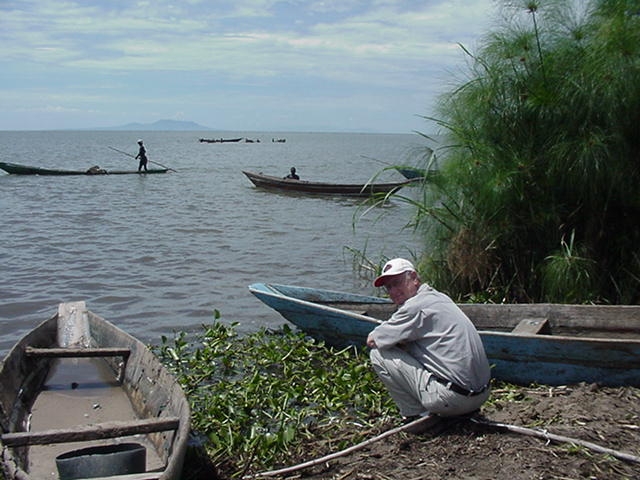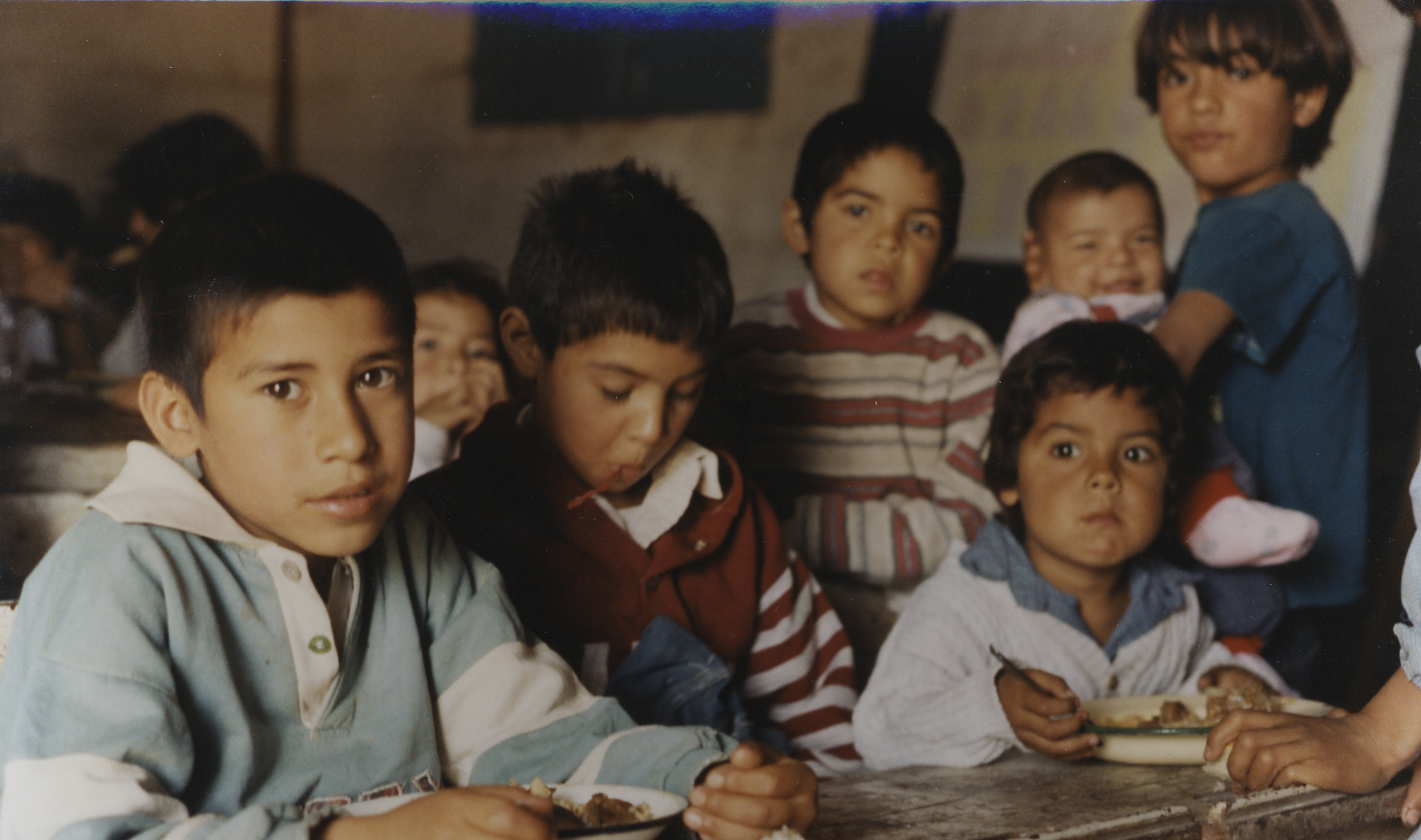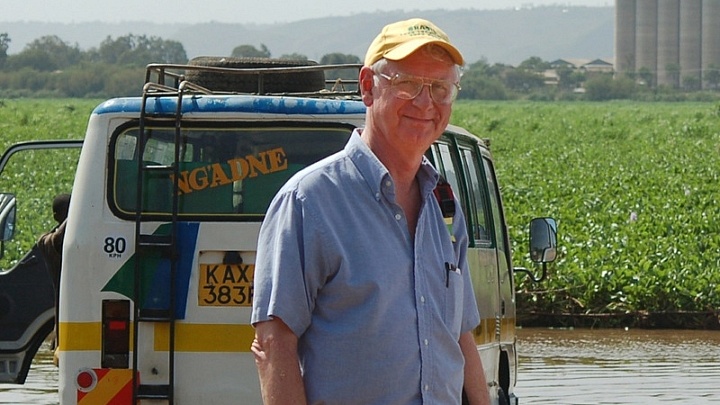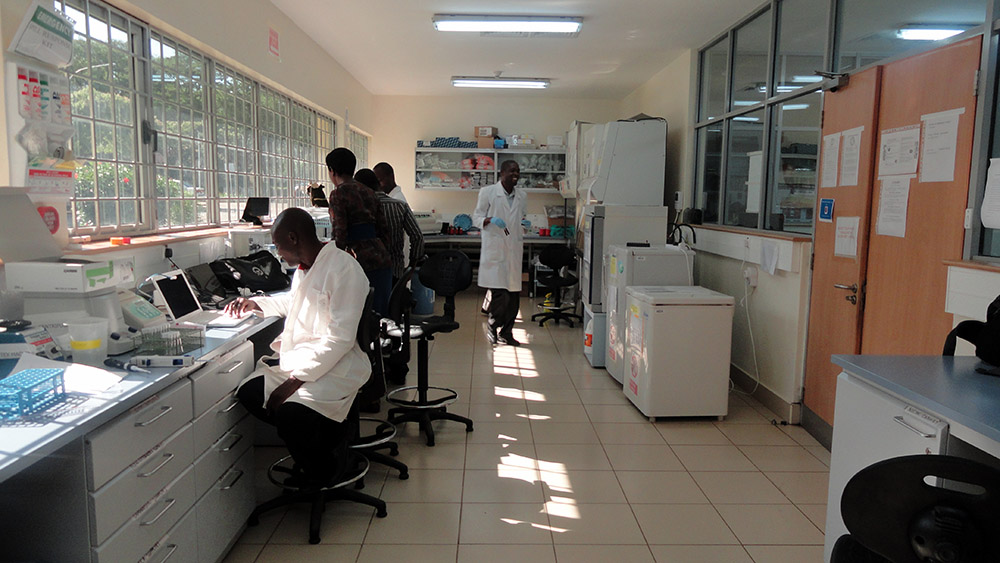International Programs


The study of tropical diseases is by its very nature international. Areas that are endemic for various tropical diseases often widely circumscribe the globe, and they also stray afield to more temperate climes when they take up residence in some of the millions of visitors to the tropics or in those from the tropics who immigrate or visit other regions of the world.
Regardless of how one looks at these diseases, almost all of the research and education within CTEGD inherently involves considering international aspects of biomedical and public health issues.
Field Research Sites

CTEGD has a number of internationally based research projects that combine investigations at the University of Georgia with on-site studies. Sites include:
- Argentina
- Kenya
- Colombia
- Peru
- Haiti
- Guyana
- Brazil
- Cambodia
- Thailand
International Collaborations

CTEGD has a number of internationally based research projects that combine investigations at the University of Georgia with on-site studies. Sites include:
In 2014, Dr. Docampo received a São Paulo Excellence Chair (SPEC) Award from the São Paulo Research Foundation in São Paulo, Brazil to establish a laboratory at the State University of Campinas in Brazil.
In 2005, Dr. Colley received the National Order of Scientific Merit of Brazil, Class “Gra-Cruze”, which was presented by the President of Brazil. In 2008, he received the Piraja da Silva Medal from the Brazilian Ministry of Health.
A long-standing collaboration exists between the Tarleton Lab at UGA and the Laucella Lab in Argentina. A project to study immune responses of patients in Argentina to potential Trypanosoma cruzi vaccine or diagnostic candidates and to attempt to correlate immunity with disease severity in patients with Chagas disease was funded as part of the NIH-sponsored Tropical Disease Research Unit grant. The two labs continue to collaborate on various NIH-sponsored projects.
Dr. Lammie is actively pursuing the elimination of lymphatic filariasis from Haiti, Guyana, American Samoa, and Brazil, while also studying the basic immunobiology of the host/parasite interactions in this chronic worm infection. The latter studies are trying to better understand the mechanisms that lead to severe morbidity in lymphatic falariasis. Conversation: Patrick Lammie and CDC Director.
In 2014, Dr. Kissinger received a Brazilian Special Visiting Professor Award from Brazil’s national science agency, CNPq, as part of their “Science Without Borders” program. The award will continue to fund an almost 20 year collaboration between the Kissinger lab and Dr. Guilherme Oliveira’s lab at the FIOCRUZ. They will expand SchistoDB to include all the flatworms and integrate it into the EuPathDB.org family of databases. Professor receives award.
Dr. Cassera has a collaboration with Dr. Ariel Silber in the Department of Parasitology at the University of São Paulo, Brazil. Their research centers on metabolomics of Trypanosoma cruzi, the etiological agent of Chagas disease, which is transmitted by an insect known as the “kissing bug”. She also collaborates with Dr. Alejandro Katzin, also of the University of São Paulo. This collaboration started the maximize their research in the area of isoprenoid metabolism in the malaria parasite. Currently, they are working on different strategies to decipher the menaquinone biosynthesis in the malaria parasite.
CTEGD is the home of the Schistosomiasis Consortium for Operational Research and Evaluation (SCORE). Its research will answer strategic questions related to the control and elimination of schistosomiasis, and there are currently SCORE projects and collaborations in USA, Brazil, Suriname, Ecuador, UK, Netherlands, Switzerland, Egypt, Zanzibar, Niger, Cote D’Ivoire, Cameroon, Ethiopia, Kenya, Uganda, Tanzania, Mozambique, Burundi, and Rwanda.
Dr. Colley’s research program, also in Kenya, is determining the immune responses of people who are occupationally at high risk to develop schistosomiasis. The goals of the research are to discover which immune mechanisms might be best to induce with vaccine candidates and to determine the impact schistosomiasis on routine immunizations of neonates and adults.
In 2012, Dr. Colley was given an Appreciation Award from KEMRI/GCHR, Kenya, for “20 years dedication in research & capacity building”.
Dr. Cassera was introduced to Dr. Yue at the Shanghai Institute of Materia Medica (Chinese Academy of Sciences, China) to test natural compounds isolated in his laboratory. They have tested over 130 natural products and derivates to search for new potential antimalarials with novel mechanisms of action. They have identified one natural product that is seven times more potent than artemisinin. Currently, they are pursuing further studies to establish the mechanism of action and its potential as an antimalarial leads.
Dr. Kyle has long-term collaborations in Thailand that started in 1990. He lived and worked in Thailand for several years and continued collaborations there for many years in research focused on drug discovery and mechanisms of resistance to antimalarial drugs. In 2015, he worked on sabbatical for a year at the Shoklo Malaria Research Unit and has continued this collaboration to find new drugs for vivax malaria with funding from the Bill & Melinda Gates Foundation and the Medicines for Malaria Venture.
International Network

In addition to the full-fledged research collaboration with investigators in universities and research institutes around the globe, members of CTEGD also have a web of international connections that often involve the exchange of students and research materials. These networks include:
- University of Ghana
- National Museums of Kenya
- Fatala Chaben Institute in Buenos Aires, Argentina
- Universidad de Valle in Guatemala City
- Nation School of Medicine and Pharmacy in Bamako, Mali
- Federal University of Penambuco in Recife, Brazil
- Centro de Pesquisas, Rene Rachou/FIOCRUZ in Belo Horizonte, Brazil.
- Centro Internacional de Investigaciones Medical (CIDEIM) in Cali, Colombia
- Shoklo Malaria Research Unit
- Institut Pasteur du Cambodge
Learn more about funded training opportunities.
